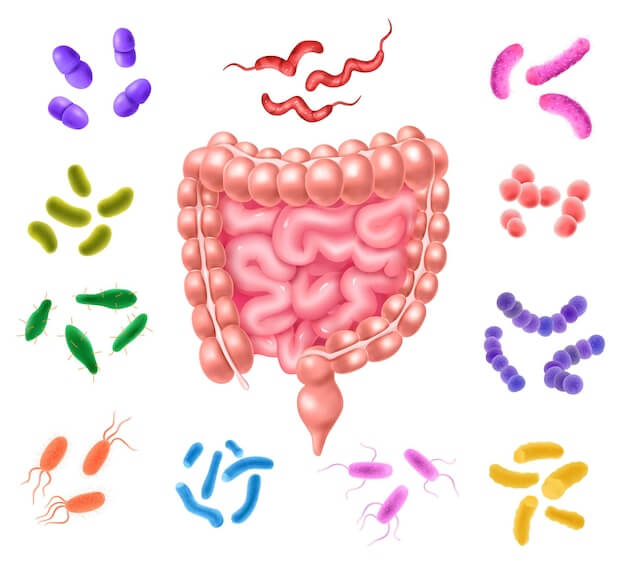In our intestines, there are a wide variety of intestinal microorganisms, which are called intestinal microflora. Many studies have proved that they play an extremely important role in maintaining normal digestion and absorption, regulating immunity and preventing pathogen invasion.
Now let's explore what role intestinal flora plays in anti-virus?
Healthy intestinal flora can maintain human immunity and prevent viruses from invading the intestinal tract
The cross disciplinary research team of life medicine in relevant universities carried out a new study in 2021. They systematically analyzed the intestinal flora structure of 13 patients with COVID-19, 8 patients with common pneumonia and 13 healthy people by using metagenome and metatranscriptome sequencing.
The results showed that there was a close relationship between COVID-19 and intestinal flora. COVID-19 infection will consume a lot of energy, resulting in malnutrition of host cells. The intestinal flora can provide energy through metabolites such as short chain fatty acids to enhance the antiviral and immune capacity of host cells. This relationship between nutrition and energy distribution affects the susceptibility and duration of COVID-19. That is, a healthy intestinal flora can inhibit the virus, while a disordered intestinal flora can promote the development of the virus.
Based on the research results, the team emphasized the important function of intestinal flora in human immunity, and suggested that the intestinal flora of confirmed patients could be adjusted by supplementing probiotics and dietary products to better prevent COVID-19 from invading the intestinal tract.

Exploration of the mechanism of intestinal flora affecting host systemic immunity
A new study published in Immunity found that the membrane vesicles released by intestinal flora can deliver bacterial DNA to host cells through blood circulation, which makes the cGAS-STING-IFN-I pathway in cells in a continuous basic activation state, and then plays a positive role in the host's systemic antiviral immunity.
These findings explain a new mechanism by which bacteria affect host antiviral immunity, and also remind people that using antibiotics during viral infection may risk weakening their own antiviral immunity.
What is the relationship between diet and antibiotic resistance of intestinal flora?
Antibiotic resistance (AMR) refers to the resistance of pathogens (bacteria, viruses, fungi, etc.) that cannot be effectively killed by antibiotics and other anti infective drugs.
Generally speaking, the effect of antibiotics that were originally effective for you is greatly reduced or ineffective due to the drug resistance problem in your body.
The emergence of antibiotic resistance is a challenge facing all mankind. The intestinal flora is an important source of antibiotic resistance. Diet is a powerful way to shape the intestinal flora or reduce antibiotic resistance.
A study published in mBio (Journal of Environmental Microbiology) found that people who eat a diversified diet of high fiber and low animal protein have fewer antibiotic resistance genes in their intestinal flora. Research data suggest that diet may be a potential way to reduce the burden of antibiotic resistance.

How to protect intestinal flora from being damaged by antibiotics? MIT scientist: Save bacteria with bacteria!
Recently, in a study published in Nature Biomedical Engineering, a research team from Massachusetts Institute of Technology and Harvard Bode Research Institute developed an engineering bacteria to help protect the beneficial bacteria of human intestine from antibiotics.
In this study, the researchers engineered a bacterial strain called Lactococcus lactis (usually used in cheese production) to release a heterogeneous dimer β- Enzymes of lactam antibiotics (penicillins, carbapenems and cephalosporins).
When these bacteria are taken orally, they will reproduce briefly in the intestine and secrete β- Lactamase. The enzyme then breaks down antibiotics that reach the gut.
After oral administration of antibiotics, the drugs mainly enter the blood from the stomach, so they can still circulate at a high level in the body. This method can also be used with antibiotic injections. After the task is completed, the engineering bacteria are expelled from the body through the digestive tract.
The researchers then tested the new method on mice, and the results strongly proved that the method can protect intestinal flora while maintaining the efficacy of antibiotics.
